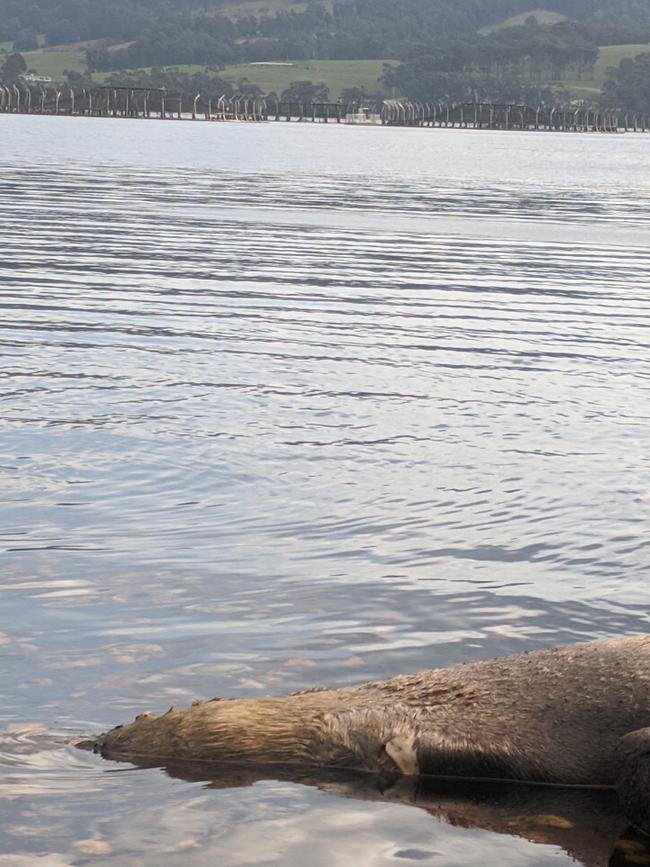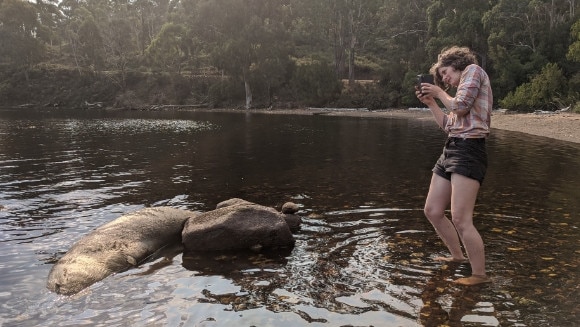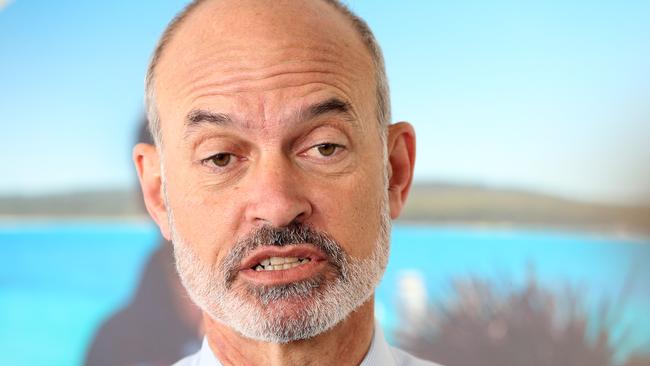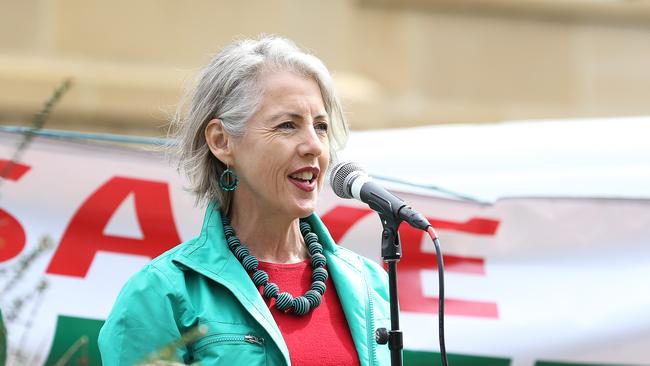Concerns raised over seal welfare near Tassal pens
The state’s peak environment group says it still has concerns about the way seals are treated, as damning government footage emerges of an alleged ‘seal prison’. THE LATEST + WATCH THE FOOTAGE >>
Tasmania
Don't miss out on the headlines from Tasmania. Followed categories will be added to My News.
- Salmon farmer Tassal seeks permit to trial spraying seals with water
- Tassal looks at new spots to relocate seals
THE welfare of seals in Tasmanian waters continues to come second to the interests of the aquaculture industry, environment groups say.
The release of information about seals held for days without food in aquaculture pens in 2016 has raised fresh concerns about their treatment.

Environment Tasmania’s Laura Kelly said she continued to field reports of dead seals turning up near aquaculture operations.
“In addition to penning, sedating and starving seals, the salmon industry are also using underwater explosives, bean bag bullets and high-flow hoses on protected seals,” she said.
“These violent measures impact marine wildlife beyond seals, including whales and dolphins.
“Allowing such aggressive industrialisation of our coastline is an attack on our marine life and the future of fishing in Tasmania, with 24 hour boat traffic, generator noise, marine dead zones and explosives where their was once abundance.”

A Right to Information request released by the Department of Primary Industries, Parks, Water and Environment shows salmon producer Tassal was investigated for holding fur seals in empty pens for days in 2016.
The department said no charges were laid and the investigation was unrelated to the subsequent granting of a permit to hold seals in pens.
A Tassal spokesman said the company had fully co-operated with inquires.
“We are aware of the release of information relating to an allegation in 2016 that was investigated by DPIPWE with our full co-operation,” he said.
“The investigation did not result in any further action.

“The Seal Management Framework and measures available to reduce seal interactions are regularly reviewed, and we continue to operate within the framework.
“Our $90 million investment in world-leading wildlife excluding sanctuary pens has significantly decreased our interactions with seals while keeping our people safe.”
Primary Industries Minister Guy Barnett said the 2016 cruelty claims had been thoroughly investigated.
“First of all, I’m advised that the department processes were appropriate,” he said.

“Secondly, the rules and regulations in and around seals are there to protect fish farm workers in particular and of course the welfare of the seals and you’ve got to get that balance right.
“I’m advised that the department followed the appropriate procedures and in addition that they sought advice from the Director of Public Prosecutions and the have acted on that advice.”
But Greens Environment spokeswoman Rosalie Woodruff said it was hard to understand why DPIPWE had granted Tassal a permit to trap seals at the same time as it was investigating it under investigation for trapping seals.
“The incident in question involved Tassal employees trapping more than a dozen Australian fur seals in an empty salmon pen for multiple days,” she said.

“When DPIPWE wildlife officers attended to free the imprisoned seals, they commented the animals looked visibly exhausted.
“On the one hand, a government department is investigating and accumulating evidence of animal cruelty against protected native wildlife, and on the other it is handing the same company a permit to conduct these activities.”



